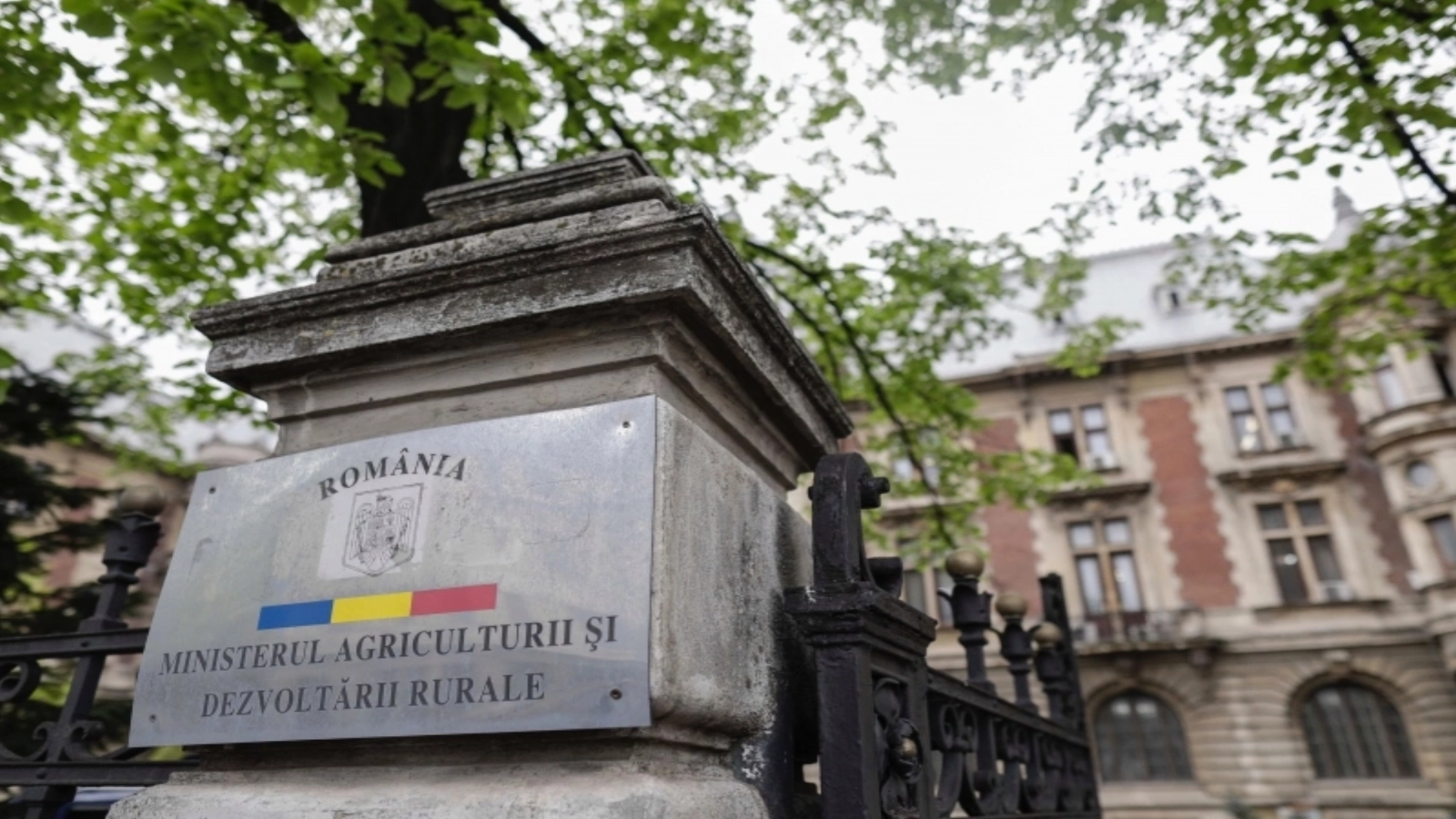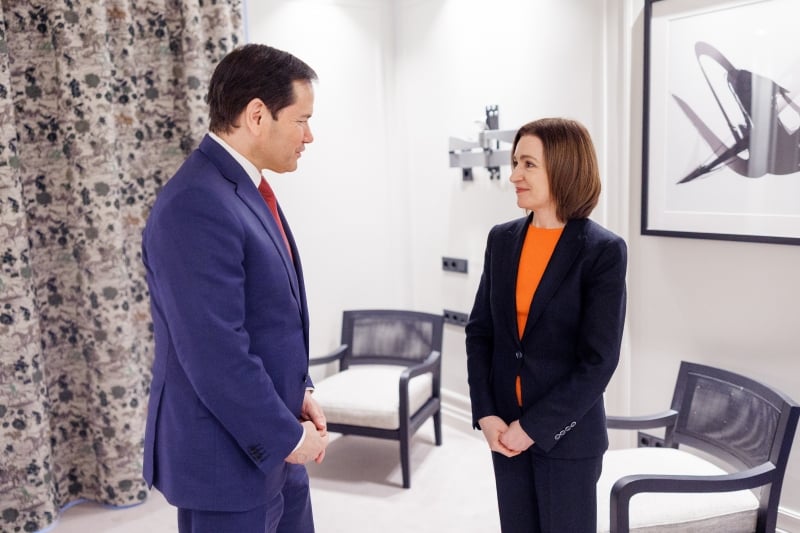The mechanisms for granting subsidies in the European Union should be rethought, and the measures that put pressure on Romanian farmers, related to the Green Deal, should be lifted, the Minister of Agriculture and Rural Development, Florin Barbu, told AGERPRES.
"The mechanisms for granting subsidies in the EU should be rethought. The measures that put pressure on Romanian farmers related to the Green Deal must be lifted. We cannot compare Romania with Finland, which has 100,000 hectares of arable land, and the rest is forests or pastures. If we talk about biodiversity, if we talk about eco-schemes, the differences between the member states of the European Union are different. If we talk about Romania, which has 9 million hectares, I think that the European Union as far as the package it gives us to finance farmers with European funds for EAGF - direct payments - should let the state's policy do it. You can't tell me 40% of the amounts you receive from European funds to be eco-schemes, because I, Romania, don't compare myself with Finland, as I said, when they have 100,000 hectares of arable land and 3 million pastures or 4 million pastures or the rest forests," Barbu said.
He said that if that does not happen in the next three years, Europe will have problems not only in agriculture, but in all areas.
"I think we have all seen what happened in the winter, when I suggested the European Commission should amend the regulation so that farmers should no longer leave 4% fallow and they all took to the streets and in the end, it was a premiere at the level of the European Commission that a regulation in the first strategic year is modified and farmers should not leave 4%. If we continue with these preconditions on Romanian farmers, I don't see Europe well and not only in agriculture, in all areas."
In his opinion, each member state should make its own decisions, and that should be established as agricultural policy.
"These things should be established as an agricultural policy. And let each state make its own decisions, of course, you notify, you talk, you discuss, but you can't pass a one-size fits all regulation for all countries when they have enormous geographical differences, there are enormous differences between states. Practically, any amendment to the regulation is made by the European Commission, where the heads of state must take the final decision. The new commissioner for agriculture seems openminded, but I tell you that in 2 years since I have been Minister of Agriculture, if we had a head of state giving the final verdict to the European Commission on certain changes to the regulation, Romania would have been far away. It is useless for me to struggle at the level of minister and try to do all these things, if the decision is taken at the level of the European Commission, where the heads of state have the last decision."
According to the minister, the most important urgency in the Council of the European Union currently is amending Directive 633 on unfair commercial practices.
"Amending Directive 633 on unfair commercial practices is already being discussed at the level of the commission, in the Council of Ministers - Agrifish. If these things go in the right direction and the directive is amended by the European Commission, I tell you that Romanian farmers and Romanian processors have better production costs than everyone else in Europe. We will have lower costs than them and we will become a strong competition for them in all the states of the European Union, on the export side."
Barbu went on to say that he is currently waiting for a report from the Competition Council on certain categories of products, to see if there is an unfair commercial practice between the markup on products processed in Romania and those that come from imports.
"I am waiting for the report of the Competition Council on 12 categories of products and we will make the list available to you to see if there is an unfair commercial practice between the practice of the markup on what is processed in Romania and on what comes from imports. That is a very important thing for us as an analysis, because if we identify these unfair commercial practices, we have to take safety measures. And safety measures in Romania can only be done legally, because it happened three years ago, under a verbal agreement concluded between processors and milk retail stores and, not having a legal framework, as we did on the chain, a retail processor with limited markup, everyone went to the farmers and lowered the price at the gate of the milk farm. If you have a limited markup throughout the chain - if you want a higher profit - you go and ask for the raw material at a higher price so that you can apply that capped markup and have a higher profit, because in the milk sector, in the bakery sector, 80% of the expenses are generated by raw materials."
Asked about the intentions after June 30, when the measure to cap the markup expires, Barbu said that the measures have not yet been discussed, but he is convinced that at the EC level Directive 633 on unfair trade practices will be amended, and the same markup will apply for all agri-food products regardless of their origin. banning re-invoicing in retail stores and limitation at the shelfs.
"I want to tell you that at the level of the European Commission and including the European commissioner for agriculture, they praised Romania for the measures taken. We are the only member state to use the correct sets of pieces of legislation on unfair commercial practices. Moreover, we had a meeting at the request of the European commissioner and we discussed Directive 633 on its amendment and they want to amend it at the level of the European Commission and in the Council of Ministers, so that the same markup is levied on the same category of products in all states. Secondly, I explained to them that it is a myth that products were sold for below the production prices. No, they were not sold above the production price, but Romanian retail was doing re-invoicing. Through re-invoicing, it takes certain money from the processor for certain services, such as shelf tax, advertising with the product, etc. Even if that left the processor with RON 7 for a markup of RON 2, the retailer then rebilled for other services of RON 2 and practically then that went below the production cost. That is why I suggested to the commissioner that in addition to the uniform markup on the same category in all EU member states, the re-invoicing of agri-food products should be banned, so that the market will be regulated."
Capping markups on basic foods, a measure taken in August 2023 by Romania to combat excessive price increases in 14 groups of food products, was continued in 2024, but the list was extended to 20 products. Official analyses showed that the products became cheaper by between 8% and over 28%.
In the autumn of 2024, Barbu announced that he wants all products processed in Romania to benefit from the capping of the markups, but the measure triggered contradictory reactions, being contested not only by the employers' federations in the food industry and the large commercial networks, but also by the business community and the associations of agricultural producers.
As a result, Barbu proposed monitoring food prices, markups and access of Romanian products on retailers' shelves throughout December 31, 2024 by a committee made up of representatives of the Agriculture Ministry, the Competition Council and the retail and processing area, but at the end of December it was decided that the measure on capping the markup son basic foods should be extended until June 30, 2025.
































Comentează